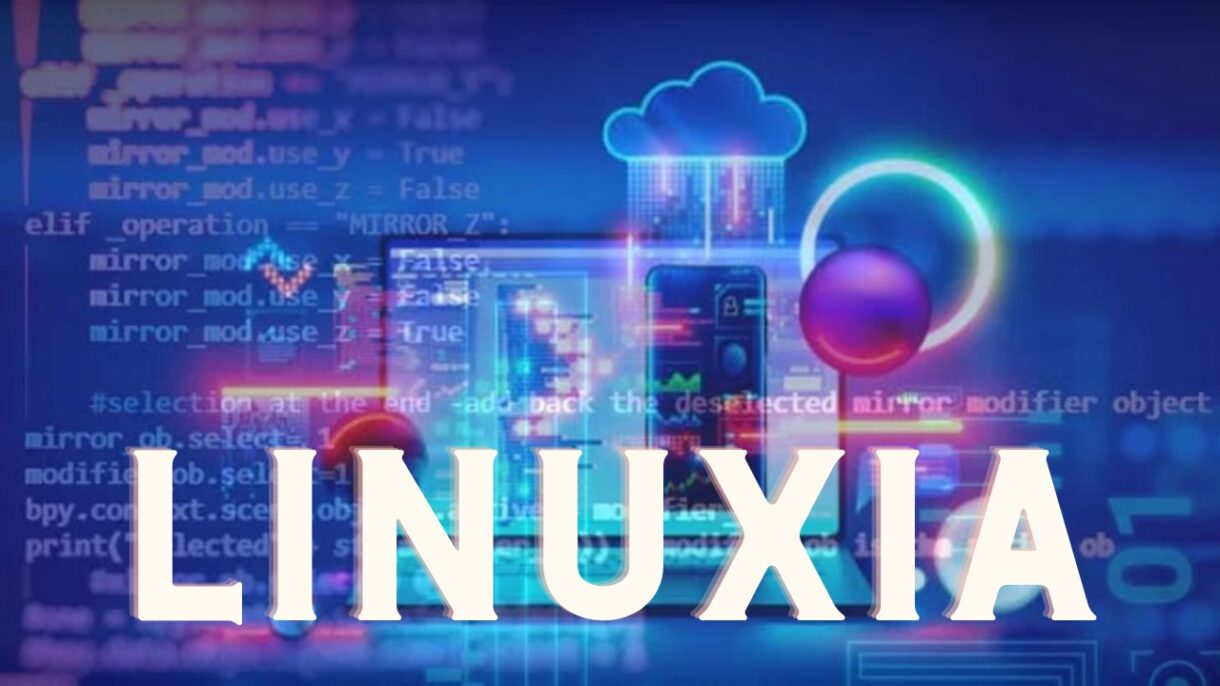Welcome to the world of Linuxia, where innovation meets freedom. In this comprehensive guide, we’ll delve into everything you need to know about Linuxia, from its inception to its applications and future trends.
What is Linuxia?
Linuxia is an open-source operating system kernel based on the Unix-like Linux kernel. It provides a versatile platform for computing devices, ranging from servers to personal computers and embedded systems.
History of Linuxia
Linuxia traces its roots back to the early 1990s when Linus Torvalds, a Finnish software engineer, created the Linux kernel as a hobby project. Over the years, it has evolved into a robust and reliable operating system, thanks to the collaborative efforts of developers worldwide.
Features of Linuxia
Customizability
One of the defining features of Linuxia is its high degree of customizability. Users can tailor their Linuxia experience by choosing from a wide range of desktop environments, package managers, and software applications.
Security
Linuxia is renowned for its robust security architecture. With built-in features such as user permissions, access controls, and frequent security updates, Linuxia offers a secure computing environment for users.
Open Source Philosophy
At the core of Linuxia lies the open-source philosophy, promoting collaboration, transparency, and freedom. Users have access to the source code of the operating system, allowing them to modify, distribute, and contribute to its development.
Linuxia Distributions
Popular distributions
Linuxia is available in various distributions, each catering to different user needs and preferences. Popular distributions include Ubuntu, Fedora, Debian, and CentOS.
Choosing the right distribution
When selecting a Linuxia distribution, consider factors such as hardware compatibility, software requirements, and community support. Choose a distribution that aligns with your specific use case and expertise level.
Installing Linuxia
Installation methods
Installing Linuxia is a straightforward process, with multiple installation methods available. Users can choose to install Linuxia alongside an existing operating system, dual-boot with Windows, or create a bootable USB drive for a fresh installation.
System requirements
Before installing Linuxia, ensure that your system meets the minimum hardware requirements. These typically include a compatible processor, sufficient RAM, and available storage space.
Getting Started with Linuxia
Desktop environment
Linuxia offers a variety of desktop environments, each providing a unique user interface and user experience. Popular desktop environments include GNOME, KDE, XFCE, and Unity.
Basic commands
Familiarize yourself with basic Linuxia commands to navigate the operating system efficiently. Commands such as ls, cd, mkdir, and sudo are essential for managing files, directories, and system settings.
Linuxia Applications
Office suite
Linuxia offers a range of office productivity software, including LibreOffice, Apache OpenOffice, and WPS Office. These applications provide word processing, spreadsheet, and presentation capabilities, compatible with popular file formats.
Web browsers
Browse the web securely with Linuxia-compatible web browsers such as Mozilla Firefox, Google Chrome, and Chromium. Enjoy a fast and responsive browsing experience with support for extensions and plugins.
Multimedia software
Linuxia supports a variety of multimedia software for viewing, editing, and managing multimedia content. Applications such as VLC Media Player, Audacity, and Shotcut offer comprehensive multimedia solutions for users.
Linuxia for Developers
Programming languages support
Developers can leverage Linuxia’s support for a wide range of programming languages, including Python, Java, C/C++, and Ruby. Integrated development environments (IDEs) such as Visual Studio Code, Eclipse, and IntelliJ IDEA are available for coding projects.
Development tools
Linuxia provides a plethora of development tools and libraries for software development. Version control systems like Git, package managers such as apt and yum, and compilers and debuggers are essential tools for developers working on Linuxia.
Linuxia in Enterprises
Cost-effectiveness
Linuxia offers significant cost savings for enterprises compared to proprietary operating systems. With no licensing fees and lower hardware requirements, Linuxia presents a cost-effective solution for businesses of all sizes.
Server applications
Linuxia is widely used as a server operating system, powering web servers, database servers, and cloud infrastructure. Server distributions such as CentOS, Ubuntu Server, and Red Hat Enterprise Linux are popular choices for hosting mission-critical applications.
Linuxia Community
Forums and communities
Engage with the vibrant Linuxia community through forums, mailing lists, and online communities. Platforms such as Reddit, Stack Exchange, and Linux user groups provide valuable resources, support, and networking opportunities for users.
Contribution opportunities
Contribute to the development of Linuxia by participating in open-source projects, reporting bugs, and submitting patches. Joining the Linuxia community allows you to make a meaningful impact and shape the future of the operating system.
Linuxia Security
Built-in security features
Linuxia incorporates robust security features to protect against malware, viruses, and cyber threats. Features such as firewall configuration, encryption tools, and SELinux provide layers of defense for securing your system.
Updates and patches
Stay up-to-date with the latest security updates and patches for Linuxia. Regular updates from distribution maintainers ensure that vulnerabilities are promptly addressed, keeping your system secure and resilient.
Common Misconceptions about Linuxia
Not user-friendly
Contrary to popular belief, Linuxia has made significant strides in user-friendliness over the years. Modern distributions offer intuitive graphical interfaces, comprehensive documentation, and user-friendly installation processes.
Lack of software compatibility
While Linuxia may not natively support all Windows applications, alternatives and compatibility layers such as Wine and Proton enable users to run many Windows software titles seamlessly on Linuxia.
Future of Linuxia
Trends and advancements
The future of Linuxia looks promising, with ongoing developments in areas such as containerization, cloud computing, and artificial intelligence. Emerging technologies and collaborations within the open-source community continue to drive innovation in Linuxia.
Predictions
As Linuxia gains further adoption across industries and devices, we can expect to see continued growth in its user base, ecosystem, and capabilities. Linuxia is poised to remain a leading choice for individuals, enterprises, and developers seeking flexibility, security, and freedom in their computing environments.
Conclusion
In conclusion, Linuxia stands as a testament to the power of collaboration, innovation, and open-source principles. From its humble beginnings to its widespread adoption, Linuxia continues to redefine the landscape of computing, offering users a reliable, secure, and customizable operating system for their diverse needs.
FAQs
Is Linuxia difficult to learn?
Linuxia may have a learning curve for beginners, but with resources such as tutorials, documentation, and online communities, users can quickly become proficient in using Linuxia.
Can I run Windows applications on Linuxia?
While Linuxia may not natively support all Windows applications, compatibility layers such as Wine and Proton allow many Windows software titles to run on Linuxia with varying degrees of success.
Is Linuxia suitable for gaming?
Linuxia has a growing selection of native and compatible games, thanks to platforms like Steam and Proton. While gaming on Linuxia may not offer the same breadth as Windows, it is steadily improving with community support and development efforts.
How does Linuxia compare to other operating systems?
Linuxia offers unique advantages such as customizability, security, and cost-effectiveness compared to proprietary operating systems like Windows and macOS. Each operating system has its strengths and weaknesses, catering to different user preferences and requirements.
Is Linuxia free to use?
Yes, Linuxia is free to use, distribute, and modify under open-source licenses such as the GNU General Public License (GPL). Users can download, install, and customize Linuxia without any licensing fees or restrictions.


